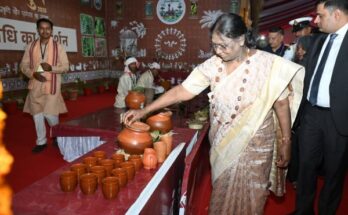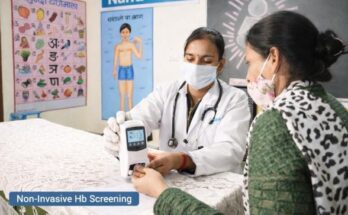
Team News Riveting
The festive celebration is right around the corner, with Diwali only a couple of days away. When it comes to the festival of lights, Indians often overindulge in festive mithais and delicacies. It is also that time of the year when diet plans and fitness routines go for a toss. This period is especially difficult for people with diabetes as they need to be mindful of their lifestyle and food consumption.
A study by BeatO, a chronic condition care platform, observed that in 2020 people whose sugar levels were controlled pre-Diwali, were facing almost a 20 per cent increase in sugar levels in Diwali week. A similar trend was seen in 2019 where people who were in the normal range pre-Diwali week, saw a 24 per cent increase in sugar levels on Diwali day.
The study also points out that people with diabetes in Tier 1 cities including Delhi, Bengaluru and Mumbai are most impacted during Diwali. BeatO observed an increase in sugar levels by 11.2 per cent, 7.5 per cent and 4.7 per cent respectively, in these cities last year.
Dr Mudit Sabharwal, Consultant Diabetologist & Head of Medical Affairs, BeatO said “Diet and lifestyle play an important role in the management of chronic conditions such as diabetes. Overeating and binging on festive delicacies can easily contribute to uncontrolled diabetes, which has negative implications on your health. With an assortment of calorie-dense sweets and foods being served during Diwali, people with Diabetes need to restrict themselves to avoid any potential health risk.”
According to BeatO, during the festive season, people with diabetes end up having high BG levels much above the desired levels which may be detrimental to their health resulting in developing various acute and chronic health complications particularly those on insulin and some oral hypoglycemics. Apart from this, it may also affect their immunity in order to fight various infections like the recent COVID 19.
However, many diabetics protest that Diwali without sweets is not as enjoyable or meaningful. Therefore, it is advisable to take basic precautions. Blood glucose fluctuation resulting in both hypoglycemia (low Blood glucose levels) and hyperglycemia (high blood glucose levels) may be harmful. Hence a regular self-monitoring of blood glucose in order to filter and control any such fluctuations is critical.
“People with diabetes must refrain from consuming heavily-oiled foods and sugar-laden items which can take blood-glucose levels out of control. Avoid snacking with unhealthy food or eat healthy alternatives such as nuts etc. Try making your own sweets at home so that you can control the amount and type of carbohydrates, oil and sugar that goes into preparing them. Have regular smaller meals since that will help in keeping blood sugar levels stable and remain well hydrated. Regularly monitor your blood glucose levels in order to keep a check on blood fluctuations and keep them in control. This may be at least twice a day or personalized depending on the status and type of your diabetes and its treatment. Excessive consumption of alcohol must be avoided. Even during the festive season, it is important to stick to your exercise routine and make sure you take at least 20-30 minutes of physical activity in some form daily. Further, do not change your usual medication or insulin doses or schedule without consulting your Doctor.” added Dr. Mudit Sabharwal.
Meanwhile, one of the best ways to ensure proper control of chronic conditions such as diabetes is via self-management tools, like a glucometer with which one can measure blood sugar at home easily and apps which help maintain sugar levels. With such aids, 70% of people are better placed to maintain normal blood glucose levels even in the festive season so that Diwali can then be enjoyed without any health risks.



